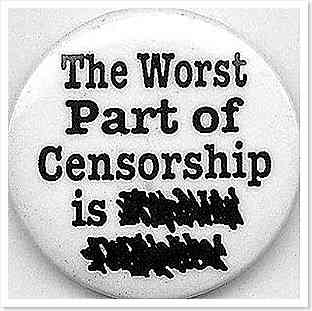
At least, that’s what could happen if certain bills make their way to congressional approval.
[aditude-amp id="flyingcarpet" targeting='{"env":"staging","page_type":"article","post_id":368681,"post_type":"story","post_chan":"none","tags":null,"ai":false,"category":"none","all_categories":"business,","session":"B"}']Scribd is a popular online publishing tool, and to make a point about SOPA, it’s voluntarily removing its documents from the Internet and urging users to put a stop to this legislation.
SOPA, the Stop Online Privacy Act, and PIPA (Protect IP Act), its sister bill, have come under heavy fire from Internet companies, and for good reason. If so much as a single document was posted to Scribd and the user who posted it didn’t hold the copyright, the entire Scribd network might be taken down.
AI Weekly
The must-read newsletter for AI and Big Data industry written by Khari Johnson, Kyle Wiggers, and Seth Colaner.
Included with VentureBeat Insider and VentureBeat VIP memberships.
Not only would those sites be blocked by ISPs; they would also be de-indexed from search engines and prevented from doing business with companies such as Paypal.
“With this legislation in place, entire domains like Scribd could simply vanish from the web,” said Jared Friedman, Scribd’s CTO and co-founder, in a release today.
“That’s why we’re showing our users just what SOPA and PIPA could do to Scribd and other sites. These bills aren’t just dry acronyms; they’re a direct attack on the underpinnings of the web.”
As a demonstration of what could happen if either SOPA or PIPA gets a go-ahead from the government, readers visiting Scribd will watch documents — more than a billion pages containing nearly half a trillion words — vanish right before their eyes. A dialog will then appear to alert readers to the protest and the bills and will provide links to more information.
While SOPA and PIPA are targeted at stopping piracy and the sale of counterfeit goods online, they also put a lot of relatively innocent bystanders in the line of fire, especially user-generated-content sites like Scribd and Wikipedia.
Wikipedia founder Jimmy Wales has also taken a similarly strong stance against SOPA, calling for a blackout of Wikipedia to protest the bill. So far, almost 90 percent of voting Wikipedians support the protest.
[aditude-amp id="medium1" targeting='{"env":"staging","page_type":"article","post_id":368681,"post_type":"story","post_chan":"none","tags":null,"ai":false,"category":"none","all_categories":"business,","session":"B"}']
Scribd and Wikipedia aren’t the only ones up in arms; a huge list of Internet progenitors petitioned lawmakers to put a stop to SOPA in an open letter. Vint Cerf, Esther Dyson, Jim Gettys and a score or two of various luminaries and web inventors wrote, “these bills will create an environment of tremendous fear and uncertainty for technological innovation, and seriously harm the credibility of the United States in its role as a steward of key Internet infrastructure.”
To contact the congressional representatives responsible for SOPA, check out the resources available at AmericanCensorship.org.
VentureBeat's mission is to be a digital town square for technical decision-makers to gain knowledge about transformative enterprise technology and transact. Learn More